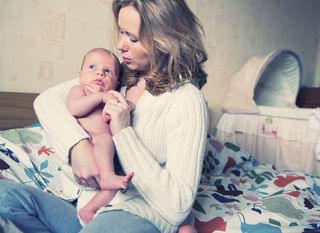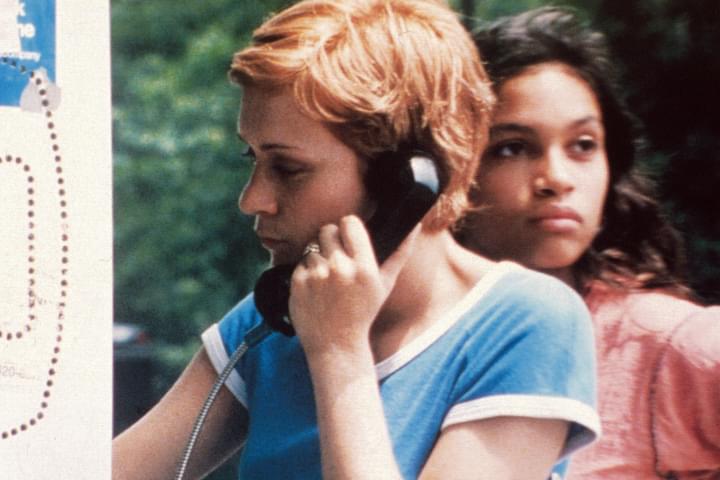Stop Your Kids from Becoming Cold and Flu Magnets!
Nobody likes getting a cold, or coming down with the flu, but it’s even worse when the littlest ones in your family get sick. Children tend get sick more often because their immune systems are fully developed, and they spend the day at school surrounded by other germ carriers too!
To help reduce the chances of your kids getting sick this coming winter season, here are some tips that are fairly easy to implement.
Germs on the Loose:
Researchers have found that for the first three days a child has a cold or flu, they are likely to spread it to others. Globules from coughs and sneezes can spread germs across a range of surfaces, including door handles, light switches, desks, chairs, and playground equipment and even on clothes. So, teach your children the importance of washing their hands and using hand sanitizer regularly. This will kill some of the germs your kids have picked up throughout the day, making it less likely they’ll develop a virus themselves.
Also, teach your children to use tissues for coughing and sneezing themselves, and remind them not to rub their runny noses on their clothes or hands, which they are often prone to do! Give them a packet of pocket tissues that they can keep in their desk or backpack, this way kids are less likely to spread germs back and forth between their classmates.
Fun science lesson: Since germs are invisible, and for kids that means out of sight, out of mind, you can show them in a fun way how germs spread. Simply put colored sugar on their hands and show them what happens when they touch surfaces. They will see bits of the sugar come off their hands and stay on the surface. You can tell them that those bits are exactly what germs do. This might help them to think more about what they are doing at school and encourage hand washing as much as possible.
Good Food and Better Sleep:
Arm your children with a better defense system (a.k.a., immune system) by giving them nutritional meals (including their lunch box). Often, due to our busy lives, we do not give as much credence to breakfast as we should, and researchers continually repeat the benefits of starting the day off right with a nutritious and hardy breakfast. With simple planning and maybe getting up a few minutes earlier out of bed, kids can start off the day with a cooked breakfast, or one that is rich in Vitamin C with lots of fruit and whole grains.
If your child is fussy with eating fruit and vegetables (many are) try giving your child multivitamins each morning, before school, to keep them topped up! This will be a fantastic boost to their immune system, and will hopefully help fend off any nasty germs trying to give your child a cold!
It’s also essential that you ensure your kids get a good night’s sleep (sometimes 10-12 hours, depending on their age). In scientific studies, a lack of sleep is linked to a weaker immune system:
“It is an old wives’ tale that if you don’t sleep well, you will get sick, and there is some experimental data that shows this is true.”
- Diwakar Balachandran, MD, director of the Sleep Center at the University of Texas M.D. Anderson Cancer Center in Houston.
Hygiene Lessons:
Going back to our first point about helping children become more aware of germs in their surroundings, you could expand on this by teaching your child more about hygiene. Good hygiene becomes especially vital during cold and flu season. Kids will not think on their own to wash their hands, but if you work with them on a daily basis, reminding them and showing them how, they can develop a good habit of hygiene. They need to know that they should wash their hands before eating, after going to the bathroom, after blowing their noses and after touching any trash or anything on the ground.
Make hand washing a game – and by that, it doesn’t mean who can blow the most soap bubbles or get the other the wettest. It means showing them how to wash and say the alphabet out loud, which when said at an even pace, is about how long it should take – approximately 30 seconds. Also show them to wash between their fingers, their finger tips and nails, and the backs of their hands.
Many classrooms now also use hand sanitizer, so it doesn’t hurt to get them in the habit of also using this or adding a small container to their backpack that they can apply throughout the day.
Whatever you do, talk to them about why hygiene is important and how it can help them to feel good. Even if it takes reminding them about how “yucky” they feel when sick, this can help them understand the reason why and make it more important to them.
Thinking of others:
Of course, we mostly think about our own progeny, but all these tips are also helping to stop the spread of colds and flu so that the rest of your child’s class also do not get sick this season. That means more kids at school where they should be, learning and having fun and fewer parents having to take a day off from work to care for their sick ones!
Bio: This article was written by Carly, on behalf of NaturesBest.co.uk, a company that provides a range of multivitamins and minerals to families in the UK.
Image credit: superhua on Flickr

When most women leave the hospital after having a baby, they receive a brochure about postpartum depression(PPD) that may feature a photo of a woman looking bereft, sad, ...

Rosie O’Donnell’s 17-year-old daughter Chelsea has been missing since last week, the TV star confirmed on her website. The teen and her 6-month-old therapy d...


Comment using Facebook